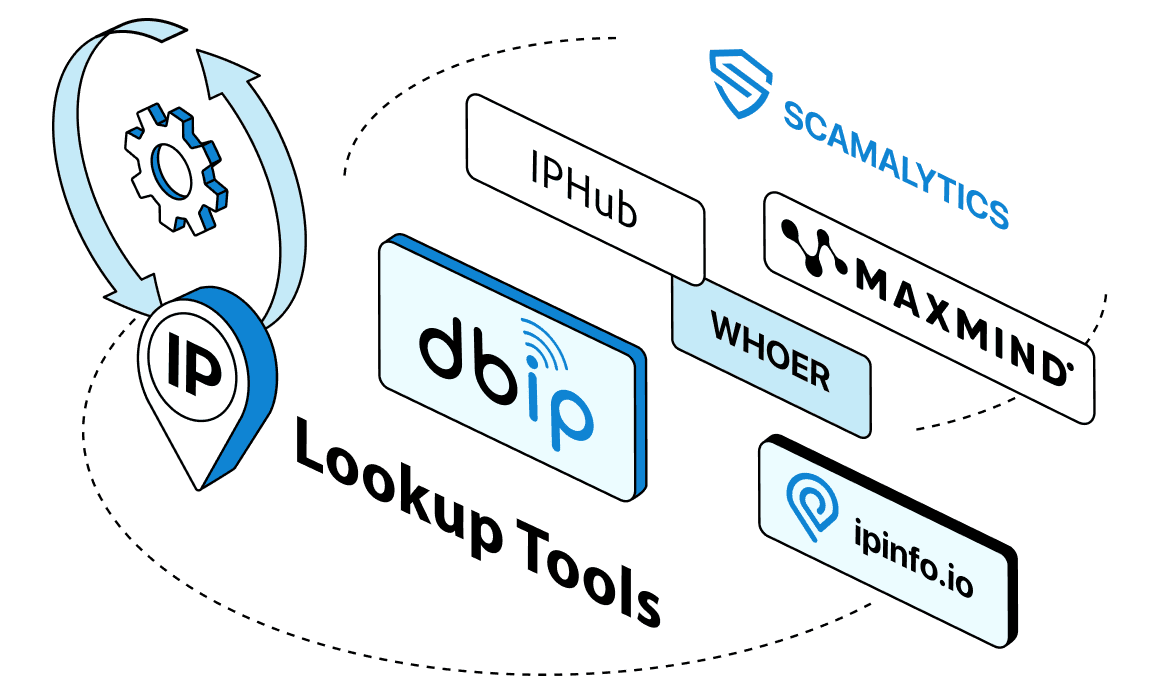
IP Lookup
Created on 6 October, 2025 • Checker Tools • 62 views • 2 minutes read
In today’s connected world, IP Lookup plays an essential role in identifying, analyzing, and securing online activities. Every device connected to the internet has a unique IP (Internet Protocol) address, and IP Lookup tools help uncover useful information
IP Lookup: Understanding How It Works and Why It MattersIn today’s connected world, IP Lookup plays an essential role in identifying, analyzing, and securing online activities. Every device connected to the internet has a unique IP (Internet Protocol) address, and IP Lookup tools help uncover useful information about these addresses. Whether you’re a website owner, marketer, or cybersecurity expert, understanding IP Lookup can enhance your online performance and protection.
What Is IP Lookup?
IP Lookup is a process used to find details about a specific IP address. This can include geographic location, Internet Service Provider (ISP), domain, and network details. It’s like tracing a digital footprint—revealing where a device or user might be connecting from.
Every device that connects to the internet—computers, smartphones, or servers—uses an IP address to send and receive data. When you perform an IP Lookup, you’re querying databases that store information about these IP addresses to learn more about their origin and ownership.
How IP Lookup Works
When you enter an IP address into an IP Lookup tool, the tool checks large databases called WHOIS or GeoIP databases. These databases are maintained by regional internet registries (RIRs) such as:
ARIN (American Registry for Internet Numbers) – for North America
RIPE NCC – for Europe, the Middle East, and parts of Central Asia
APNIC – for the Asia-Pacific region
LACNIC – for Latin America and the Caribbean
AFRINIC – for Africa
The lookup result typically includes details such as:
Country, region, and city
Latitude and longitude (approximate location)
ISP or hosting provider name
Organization or company name
Connection type (broadband, mobile, corporate, etc.)
Types of IP Lookup
There are two main types of IP Lookup based on the IP version and lookup purpose:
1. IPv4 and IPv6 Lookup
IPv4 is the older format (e.g., 192.168.1.1), while IPv6 is the newer version designed to handle more addresses (e.g., 2001:0db8:85a3::8a2e:0370:7334).
IP Lookup tools can analyze both to extract relevant information.
2. Reverse IP Lookup
A Reverse IP Lookup helps identify all the domains hosted on a particular IP address. This is useful for website administrators, SEO experts, and cybersecurity teams to detect shared servers, potential spam sources, or compromised sites.
Why IP Lookup Is Important
IP Lookup provides value across several areas:
Cybersecurity: Helps detect suspicious activity, spam, and hacking attempts by tracing IP origins.
Marketing: Businesses use IP Lookup for location-based marketing and customer segmentation.
Network Management: IT teams use it to track user connections, troubleshoot issues, and monitor access logs.
Website Analytics: IP data helps identify visitor locations and traffic sources.
By integrating IP Lookup into analytics or security tools, businesses can enhance performance and safeguard digital assets.
Conclusion
IP Lookup is more than just a technical process—it’s a gateway to better understanding online interactions. From improving cybersecurity to refining marketing strategies, knowing how to use IP Lookup effectively empowers individuals and organizations to make data-driven decisions. In short, IP Lookup helps turn raw IP data into meaningful insights that drive safer and smarter internet use.
Categories
Popular posts
-
Number to Words ConverterConverter Tools • 83 views
-
YouTube Timestamp Link GeneratorGenerator Tools • 76 views
-
File Mime Type CheckerChecker Tools • 63 views
-
UTM link generatorGenerator Tools • 62 views
-
IP LookupChecker Tools • 60 views